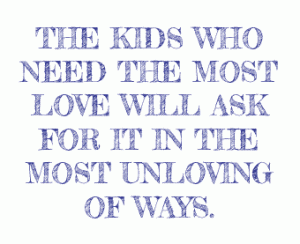Early Childhood: Red Flags and Intervention
Early childhood intervention can be extremely beneficial for young people and their families. With huge amounts of growth and learning, these early years are crucial to development with parents playing a key role in a young person’s social and emotional wellbeing. According to the research, we know that early intervention can increase the chances of positive outcomes for families and their young person, reduce the chances of a secondary issues arising later in life and decrease costs to communities and schools. Early intervention is guided firstly by screening for ‘red flags’.
Red Flags
What is just normal child behaviour versus what is not? At different times in their development all children will experience some difficulty controlling their emotions and their behaviour. Red flags can occur across or within various aspects of a child’s functioning (psychomotor, speech, sensory, emotional, social) and generally involve: extreme behaviour in comparison to the same aged peers; prolonged issues (lasting weeks, months); issues across more than one context (school, home, playgroup); interference with development and learning; ongoing issues despite adult guidance and support; regression in development/learning.
Some specific examples through early childhood include:
- persistent sleep and feeding problems; irritability and fussiness;
- uncontrollable crying that is not responsive to soothing;
- difficulty adjusting to new situations;
- inability to form relationships with peers and adults;
- excessive violence towards other children;
- significant and age inappropriate separation anxiety
- very withdrawn behaviour.
Intervention
The Psych Professionals child psychologists use evidence-based practice whilst customising treatment to suit individual and family needs. Depending on the nature of the issue, a range of evidence-based therapies are available. Treatment will often involve parents and caregivers given a large amount of learning consolidation in early-childhood comes from those who can model and demonstrate effective coping.
Early childhood difficulties are generally classified into the following categories: externalising and internalising issues (e.g. hyperactivity, aggression, opposition, disobedience versus anxiety/mood issues); relationship disorders (attachment issues, Autism) and regulatory disorders (disordered sleep and eating patterns). One of the common complaints among parents is managing difficult behaviours such as tantrums and meltdowns.
 Managing Difficult Behaviours
Managing Difficult Behaviours
Difficult behaviours can have many different causes so the first step in managing this behaviour is developing a ‘theory’ as to why it is occurring. This way an effective treatment strategy can be determined. Keeping track of the before, during and after of the behaviour in as much detail as possible will assist in this process.
Some general tips on managing difficult behaviours:
- Keeping as calm and firm as possible
- Be consistent and follow through
- Validate the child
- Distraction (making the child laugh, give them a job)
- Use a secret sign which signals the child to check their behavior
- Provide a quiet space for the child to calm down
- Time out (roughly the child’s age- use an oven timer)
- For ‘Minor But Annoying’ behaviours – planned ignoring (reducing the frequency of the behaviour by not paying attention to it)
- Removal of privileges (more useful for older ages)
- 3 minute breathing space
A key component of behaviour therapy is the use of positive praise and rewards. Essentially, if you want a behaviour to occur more often – pay attention to it. Praise that is specific, sincere and encourages effort is understood to be the most effective in reinforcing positive behaviour. Another important aspect of behaviour management involves spending quality one on one time with each child where possible. This can help to improve the child’s confidence, settling and stress levels as well as improve our own connection and empathy for the child.
Find out about our Child Counselling and ASD Assessment and Counselling at The Psych Professionals we offer remote telehealth consultation or if you are in Cleveland or Loganholme in Qld Australia, book an in-person appointment with our psychologists
Resources:
Early Childhood Intervention Australia Website
Australian Psychological Society Website
Australian Early Childhood Mental Health initiative – Kids Matter, 2012
Reid, R. Littlefield, L. & Hammond, S. W. 2008. Early intervention for preschoolers with behaviour problems: Preliminary findings for the Exploring Together Preschool Program
Kingston, Frontenac and Lennox & Addington (KFLA) Red Flags Committee, 2014. Red Flags for children birth to six years: A Quick Reference Guide for Early Years Professionals

